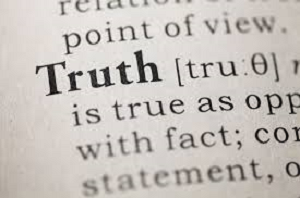
Post-truth incompleteness
Before we know what post-truth is, we must know if there is any definition of truth, and this leads us back to the beginnings of Western civilization, where it was known that the truth was hidden, that is, either for Aristotle or Plato, the At the apex of Greek culture of antiquity, truth was hidden, that is, an aletheia was necessary, a Greek term not to be concealed, manifest, or even more (negation) lethõ (forget), therefore there is only truth about a fact occurred.
leads us back to the beginnings of Western civilization, where it was known that the truth was hidden, that is, either for Aristotle or Plato, the At the apex of Greek culture of antiquity, truth was hidden, that is, an aletheia was necessary, a Greek term not to be concealed, manifest, or even more (negation) lethõ (forget), therefore there is only truth about a fact occurred.
For Greek philosophy it was clear that “doxa” or opinion was contrary to episteme, or systematized and organized knowledge, but every episteme implies a method, that is, it comes from that epistemology, or the way to organize and prove certain knowledge.
The issue arose in the context of current politics because some politicians, avoiding names to avoid the doxological polarization (of opinions) started to deny facts, that is, what was registered and proven, and even denied, but this did not it’s new.
Already in her 1967 essay “Truth and Politics,” Hannah Arendt stated that fact-based truth could be substantiated and verified, but politicians insisted on turning back and making speeches based on opinions, so it is not new, and seeing with the media is something else, the monopoly of opinion and that almost always is not based on data.
The fact that there are social network media, networks and groups have always existed only that they were hegemon owners of newspapers and magazines, and now they are not, it starts to have an open confrontation of opinions, that turn into organized twisted, with emotional appeals and doxological.
It is not by chance that populist politicians, who all bordered on or were avowedly fascists, were great orators and capable of provoking fascination in the masses, the fascination today is another, the ability to articulate facts and use images or data that simulate false epistemes.
Brazil was the cases of mensalão, petroleum and other ill-informed people that generated a body of half-truths that inflamed and reached a large part of public opinion, another was little consideration of the cultural and moral values of society, whether religious, whether it be black culture, indigenous culture, or Brazilian regionalities, there were many untruths.
It is so difficult to understand sometimes, that even trying to clarify the facts we are confused, for example, in Portugal there is now a famous case (here) of Tancos, a barracks where a gun truck was stolem the weapons of war, and I needed a Portuguese friend to understand, there is half-truths everywhere and lots of tall people seem involved, and the guns were returned with even an extra box of arms, appear a jokie but ist real fact.
As part of the truth of the facts, there are currents of “opinions” where the term may be inappropriate, currents of divergent or even opposing cultures would be better, without the broad dialogue required the tendency is for cheerleaders to grow and increase number of conflicts, where intolerance prevails the risk of serious conflicts is eminent.
We separate here “opinion” of epistemological, cultural or methodological divergence, since different ways to obtain the truth must be thought apart from the passions, otherwise the possibility of concrete ways to overcome crises are blocked and reason disappears.









